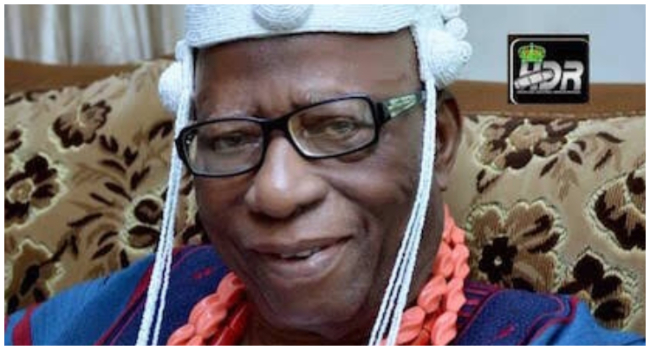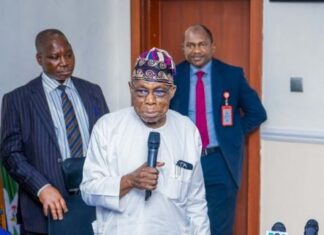Appellants argue that the trial judge erred in law, by relying on the contents of exhibit C (a book authored by the first appellant)
By Jude-Ken Ojinnaka
A first-class traditional ruler in Ondo State, the Oluoke of Oke-Igbo in the Ile-Oluji/Oke-Igbo Local Government Area of the State, Oba Babajide Lawrence Oluwole has urged the Court of Appeal in Ondo State to quash a ruling of the State High Court which nullified his appointment as Monarch
Recall that a State High Court sitting in Ondo city had on April 13, nullified the appointment of the monarch, following a suit filed by two princes from the Aare Kugbaigbe ruling house, Rufus Adekanye and Temitope Adeoye, the Head and Secretary of the House respectively.
The plaintiffs had challenged in court the appointment of Oba Babajide Lawrence Oluwole as a Monarch by the Ondo State Government and had joined the Kingmakers in the town as parties to the suit.
The plaintiffs had argued that the defendant was not a member of the Aare Kugbaigbe Ruling House which turn was to present a candidate to the throne, contending that the stool is still vacant.
READ ALSO
I gave Kogi PDP delegates anointing oil — Melaye
In his ruling on the suit, Justice Ademola Enikuemehin had found merit in favour of the plaintiffs and held that Oluwole was not a member of the ruling house which turn was to produce the immediate king.
The court had therefore, ordered that “the Olu-Oke of Oke-Igbo Chieftaincy in the Ile-Oluji/Oke-Igbo Local Government Area of Ondo State is subject to the Declaration in Part two of Justice Adeloye Judicial Commission Of Inquiry On Chieftaincy Matters and the Chiefs Law CAP 27 Volume 1 Laws of Ondo State 2006.”
The court had further stated that “Under the Olu-Oke of Oke-Igbo Declaration contained in Part Two of Justice Adeloye Judicial Commission Of Inquiry On Chieftaincy Matters, eligibility to the throne is restricted to the descendants of (1) Odo Eleyowo (2) Aare Kugbaigbe (3) Kuole Oloje (4) Aderin Ologbenla (5) Ajibike Adedimeji of the male linage who is thus constituted as the five Ruling Houses of the Chieftaincy.
But dissatisfied with the lower court’s verdict, the defendants through their counsel Mr Olalekan Ojo (SAN), on Tuesday, filed a Notice of Appeal, challenging the entire ruling of the lower court.
The appellants are listed as: Chief Babajide Lawrence Oluwole, Chief Clement Ogunlana, Chief Abiodun Oyewusi, Chief Oye Elusiyan, Chief Doyin Olatunji, Chief Tunde Odejobi, Chief Sola Adeniran, Chief Damilola Ogungbemi, Chief (Mrs) G.M. Somefun, Chief Obalale, and Chief J.O. Oketade-Yegbata
Listed as respondents are: Prince Rufus Adekanye, and Prince Temitope Adeoye (on behalf of themselves and the Aare Kugbaigbe Rulling House of the Olu-Oke of Oke Igbo Chieftaincy, Oke Igbo)
Other respondents are Governor of Ondo State, Commissioner for Local Government and Chieftaincy Affairs, the Attorney General of Ondo State and the Secretary, Ile-Oluji, Oke- Igbo Local Government.
In their seven grounds of appeal, the appellants also exhibited four particulars of errors by the lower court and consequently invited the appellate court to make findings in his favour.
The appellants first aver that the trial judge erred in law by failing to deliver judgement within 90 days after the parties had concluded their written addresses.
Appellants argue that the trial judge erred in law, by relying on the contents of exhibit C (a book authored by the first appellant) when the said exhibit C was merely produced before the trial court, in obedience to the Subpoena Duces Tecum served on first appellant without calling any witnesses to give evidence with respect to same
They argue that the lower court erred in law by treating portions of the evidence of DW3 during cross-examination, as evidence or admission against the interest of the appellants, when the so-called admission was not made by any of the appellants.
They aver that the trial judge erred in law by granting the first and second respondents, injunctive and declaratory reliefs against the appellants, without properly evaluating the totality of the evidence before the trial court, and thereby, came to a decision occasioning a miscarriage of justice.
The appellants consequently prayed the appeal court to set aside the judgement of the lower court and dismiss the first and second respondent’s claims against the appellants.
In the alternative, the appellants seek an order from the appellate court, remitting the suit back to the State High Court, for a fresh trial before a new judge.













